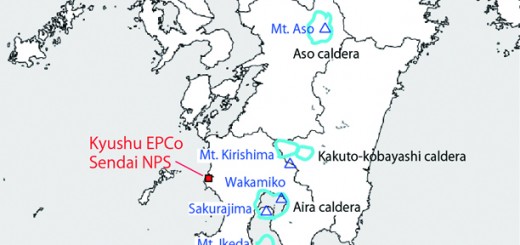CNIC Statement: Ministry of Economy, Trade and Industry (METI): Stop the Scheming for Extended NPP Lifetimes!
November 15, 2022
The Ministry of Economy, Trade and Industry (METI), at the 33rd Meeting of the Nuclear Energy Subcommittee of the Advisory Committee for Natural Resources and Energy on November 8, presented the following three proposals for extending the operating periods of nuclear power stations (NPPs) or their individual reactors. 1) maintain the current regulation of a 40-year limit with an extension of up to 20 years, 2) no upper limit on extensions, and 3) consider extensions while setting a uniform upper limit on operation periods (including not counting long periods of suspended operation) (Committee materials No.5). At the meeting, a majority of the members claimed that 2) should be selected. With the exception of a very few members, the committee consists of people who are nuclear power protagonists, and so it is no surprise that they would hold that opinion.
It is first necessary to explain that the background factors to the need for considering long periods of reactor operation in the first place are the high costs and extreme difficulty of gaining the consent of local residents for new-build NPPs/reactors.
What is apparent from Committee materials No.5 is that all three proposals are schemes to “gain approval for extensions in order to implement the policy of NPP utilization,” for which METI is attempting to move toward a revision of the relevant laws. Since a revision of the Nuclear Reactor Regulation Act is beyond the jurisdiction of METI, this would likely mean revising the Electricity Business Act or its enforcement ordinances. In other words, the intention is to have the powers of METI extend to the nature of the NPP operators’ use of nuclear power.
On October 11, CNIC issued a statement (cnic.jp/english/?p=6333) criticizing the approval of operation of NPPs beyond 60 years by the Nuclear Regulation Authority (NRA). The risk of severe accidents associated with long periods of operation are explained in detail in that statement.
In its 47th meeting, NRA confirmed the following points. 1) If METI does not attempt a revision of the law, NRA will also not attempt to revise the Nuclear Reactor Regulation Act and 2) Since NRA works on the basis of calendar years, it will not treat long periods of suspended operation as exceptions. Further, if METI attempts to revise the law, NRA policy will be to upgrade 10-year inspections to reactor viability reviews after reactors have operated for 30 years. However, with no established method of measuring the embrittlement status in reactor pressure vessels, as pointed out in the CNIC statement mentioned above, the strengthening of safeguards gained by upgrading inspections to reviews will simply mean that the paperwork submitted by NPP operators will be reviewed, which is a long way from any substantial “strengthening.”
Investigation of the causes of the Fukushima Daiichi nuclear accident, which continues to cause unprecedented suffering, led to a separation of authorities promoting nuclear power and those regulating it. METI’s regulatory powers were taken over by the newly created Nuclear Regulation Authority (NRA) which is now responsible for approval and authorization of NPPs. Thus, METI’s recent moves amount to a rollback of these reforms made as a result of the Fukushima Daiichi nuclear accident and we can only say that this is a scheme to reinstate the powers of METI with regard to the use of nuclear power.
From the viewpoint of METI’s plan for nuclear power (20-22% of generated electricity to be provided by nuclear power from 2030 onward) it is clear that the revision of the law is so that METI can gain power to give a strong boost to the promotion of nuclear energy. There is also the fear that this will impede the development of renewable energy. Further, at the Nuclear Energy Subcommittee mentioned above, Governor Sugimoto of Fukui Prefecture, where NPPs are located, expressed concerns over the heightened risk of accidents due to the extension of operating periods. METI must stop plotting to revise the law to implement its nuclear energy policies at any cost.

